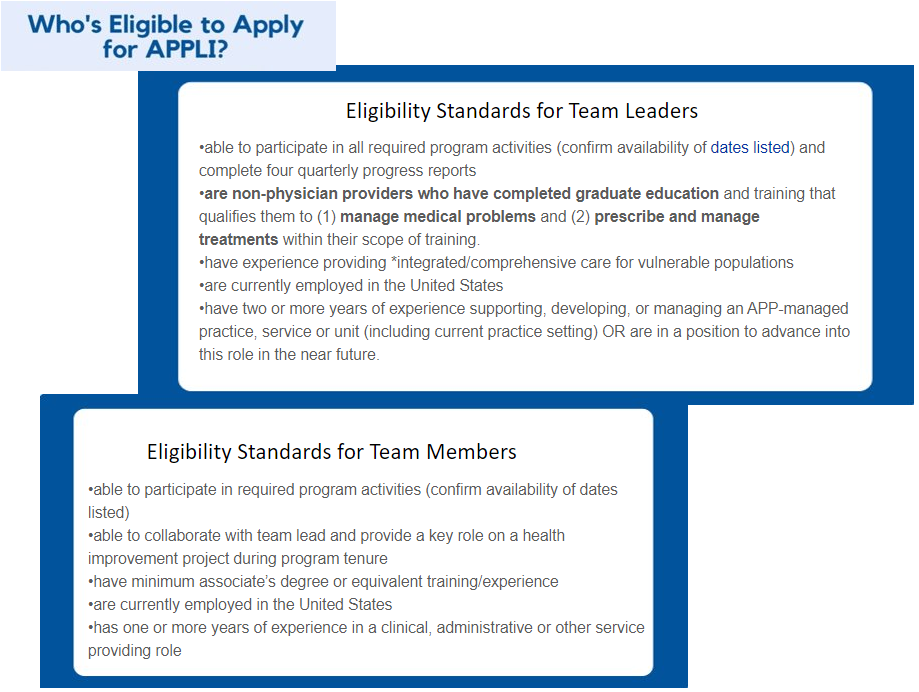Cost & Admission
Program Cost
Through a generous contribution from Duke Health Chancellor’s Office this past year to help support a portion of the program’s operations cost, this robust one-year leadership development program has a one-time enrollment fee per participant. Each year, the enrollment fee is determined and may differ annually. The amount depends on contributions received from donor organizations in that specific year, aiding in covering certain program expenses. When applications are being accepted for a new cohort, the enrollment fee will be listed.
The program will be conducted virtually so there will be no travel expenses to incur. To participate virtually, the program’s technology requirements include access to high-speed internet connectivity for distance-based sessions and a computer with speaker/microphone and built-in camera or webcam.
All other expenses, such as required training materials or subscriptions, executive coaching fees, training fees and CE/CME fees will be covered by the program.
For more information, please contact our office at APPLI@duke.edu.
Admission

The APPLI leadership training program expects that program participants demonstrate a commitment to full participation for the length of the year long program.
There are specific criteria for admission, including full participation in required program activities. Please carefully review all admissions requirements before applying.
Who Should Apply
Duke APPLI is designed to support APPs and their team members who serve vulnerable populations. Ideal candidates for the program are Advanced Practice Providers and their health care colleagues and professionals based in community sectors that address social drivers of health – collectively, all team members come together with the goal to collaborate together on a health improvement project and acquire individual and team competencies in the skills and knowledge supportive of successful APP-led initiatives in health care or community-based settings.

*Integrated/comprehensive care is a concept of bringing together the organization, delivery and management of services related to diagnosis, treatment, care, rehabilitation and health promotion in a way that provides continuity for and partnership with patients, families and communities.
Vulnerable populations, with respect to health, are groups and communities that often have been historically excluded and subjected to systems and processes that have put them at a disadvantage for optimal health and well-being. The barriers experienced by these individuals can be related to race, ethnicity, culture, religion, age, gender, or sexual orientation, as well as factors such as occupation, income, health insurance coverage, absence of a usual source of care as well as limitations due to illness or disability. Their health and healthcare issues may also intersect with social factors, such as education, occupation, geography, housing, and poverty.
Other Items to Consider
All program candidates must be able to:
- Access technology which meets the current program requirements
- Secure support from employer to participate in the program, via completed Employer Letter of Commitment
- In addition, if, for any reason, any team member is no longer able to participate in the program (e.g., illness, job change, move out of the area), please consider, in advance, who else in the organization would be a good and willing candidate to: (a) step into the role of the departing member for this project and (b) participate in remaining program You will be asked to address a contingency plan in your application.
Selection Criteria
The Selection Committee will evaluate and score the successfully submitted applications based on the following:
- whether all members of the applicant team have met the basic eligibility requirements
- depth and scope of the applicants’ employment history, professional activities and volunteer experiences
- strength of each applicant’s personal statements in response to the application essay questions
- strength of the team’s composition (e.g., members’ synergy, complementary skills and specific roles that could support the success of the proposed health improvement project).
- Strength of the proposed transformational project, including clarity, feasibility, potential impact, and sustainability
- The results of the initial review and scoring will determine those teams with whom interviews are conducted
If you have difficulty accessing the application, please contact: APPLI@duke.edu.
